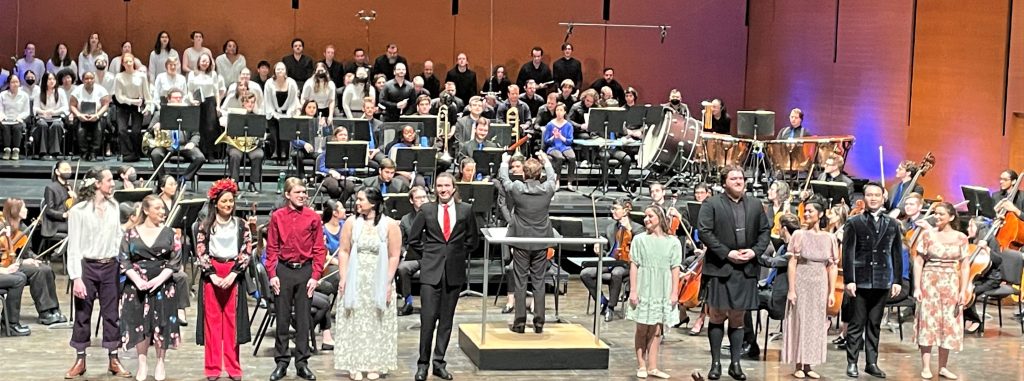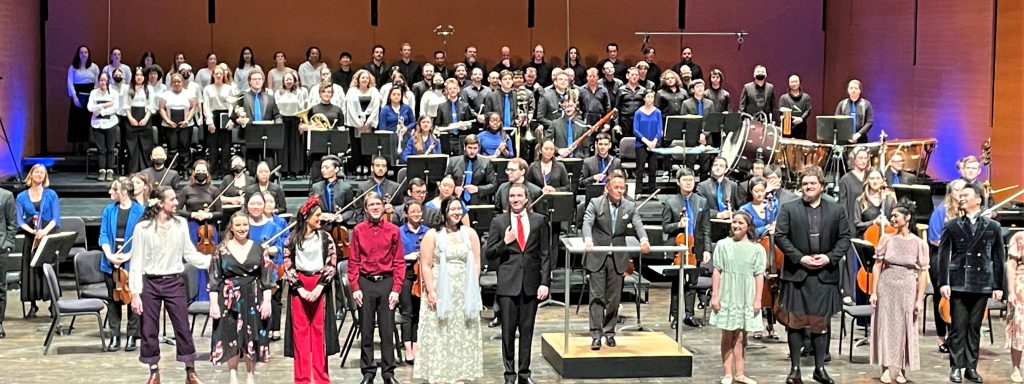
Who says they died decades ago? Both of them were at the Bard Sosnoff Theater bar last night drinking a nightcap. They live on despite rumors of their death, for if you have the gift of laughter—one becomes immortal, an invisible fairy tinkering with the fate of other mortals.
In ancient Greek mythology the gods sometimes found humans to be sexually attractive, which is how heroes like Achilles were born, half-god and half human. Something similar happened in jolly old England where they once had enchanting fairies. England had rigid sexual laws and customs, one regulation being strict segregation between fairies and humans. The penalty for a fairy for producing a half-fairy, half human was death, which would make the performance a tragic operetta, yet we all know that the British Empire suffered only one tragedy, the loss of North America. Despite this Elephant in the Room, the climate of England cannot endure tragedy: thus, even the notion that someday one might die in the future can be immediately ruled out; citizens can go about the serious business of their lives like falling in love with whoever, or whomever, one takes a fancy to, despite that class tradition of maintaining snob hierarchy.
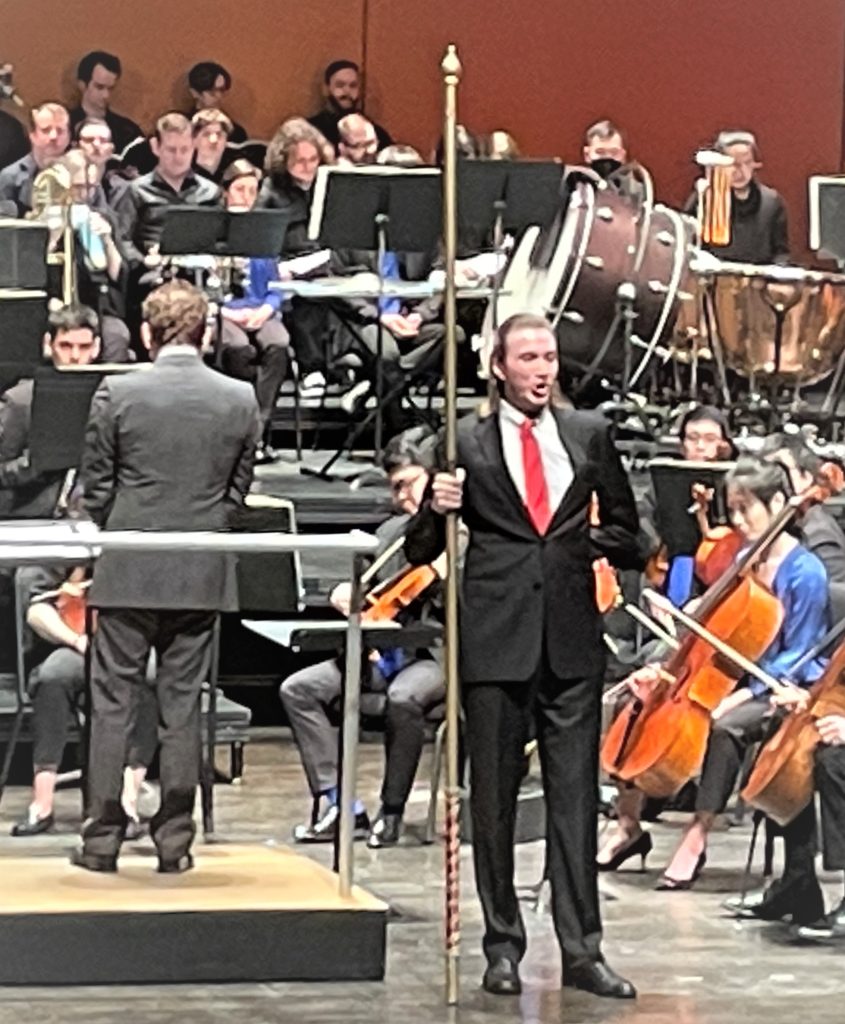
Since the sensible rules of class division do not always provide happy endings, theater offers that option of dismantling convention and making a shambles of social structure in novels like Fielding’s Tom Jones or the fancies of Gilbert & Sullivan (who, tragically, did not always get along with each other, this being the sixth of their eleven productions). Yet success washes all anger away, as money provides comfort. In order to banish the notion of tragedy, the English upper classes don the armor of dry wit, a characteristic usually found naturally roiling in the lower classes around our globe—a joyous wit, not the caustic barbs that bleed in the gutter.
The plot of the operetta Iolanthe remains so silly that it cannot be sensibly discussed, which is quite proper. Britten possesses a foggy landscape where death is banished in favor of choosing whatever mate one might wish for, despite class, friendship, or sexual orientation. Anything goes, as long as you have the wit to make it so.
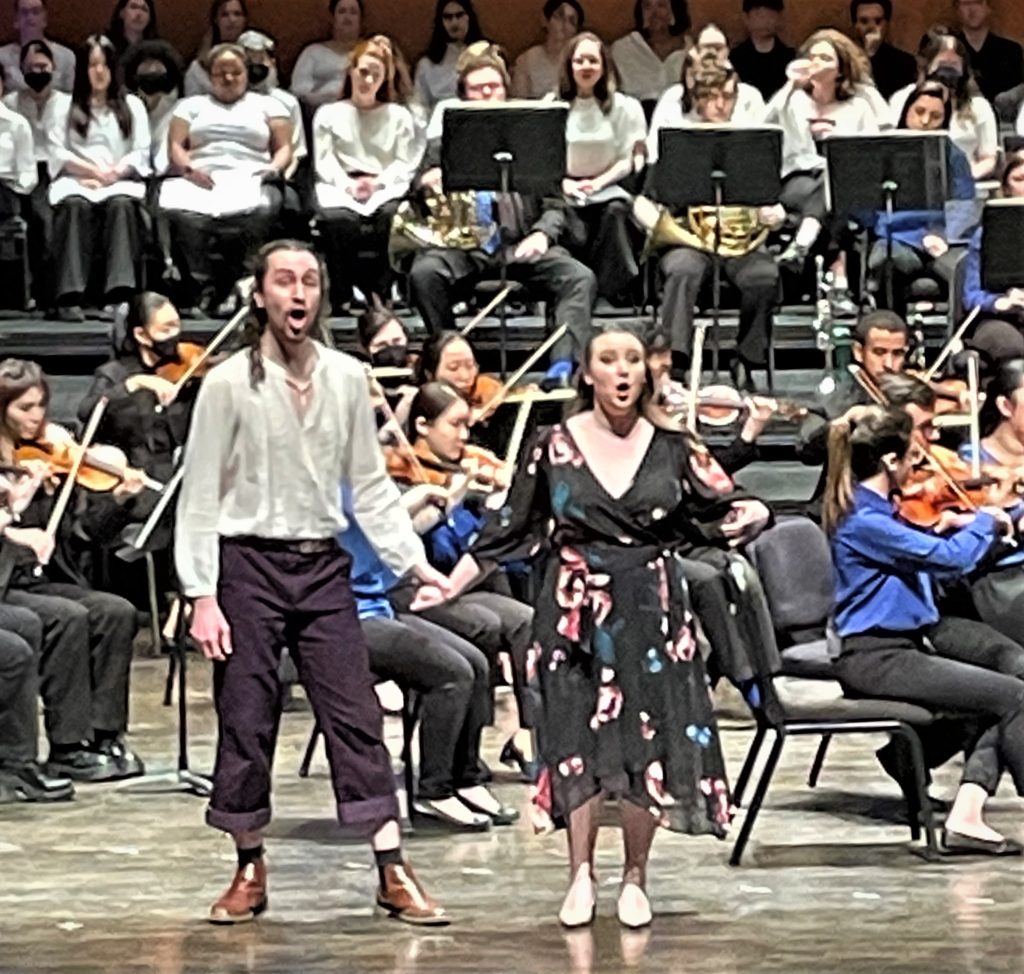
Conductor James Bagwell directed both The Orchestra Now with Bard Festival Chorale and Bard College Chamber Singers, accomplishing the exuberant pacing that nonsense, in all its glory, demands. I think everyone in attendance fell in love with Baritone Jonathan Lawlor, the Lord Chancellor, who loved his young ward, the Sheparddess Phyllis. Danielle Maeng on flute preformed a marvelous duo with Jasper Igusa on oboe.
The three fairies (Teryn Kuzma, Katherine Lerner Lee, and Sadie Spivey) stole all those (like me) who have three hearts to pump their blood. Colton Cook as the Earl of Mountararat was impressively memorable. As Queen of the Fairies Mezzo-soprano Melanie Dubil exuded sanity with a calming voice; Soprano Maria Giovanetti as a Shepherdess cast a forceful spell over the audience. Baritone Michael A.M. Aoun as Strephon, human from the waist down and fairy from the waist up, exuded geniality in voice and flexibility in body language. Tenor Zihao Liu as Thomas delivered excellent tone and dramatic aplomb. Mezzo-soprano Abbagael Greene supplied deep emotional intimacy with her velvet voice. Above all, was the angelic choir whose resonant sound made the fairy world a wondrous reality.
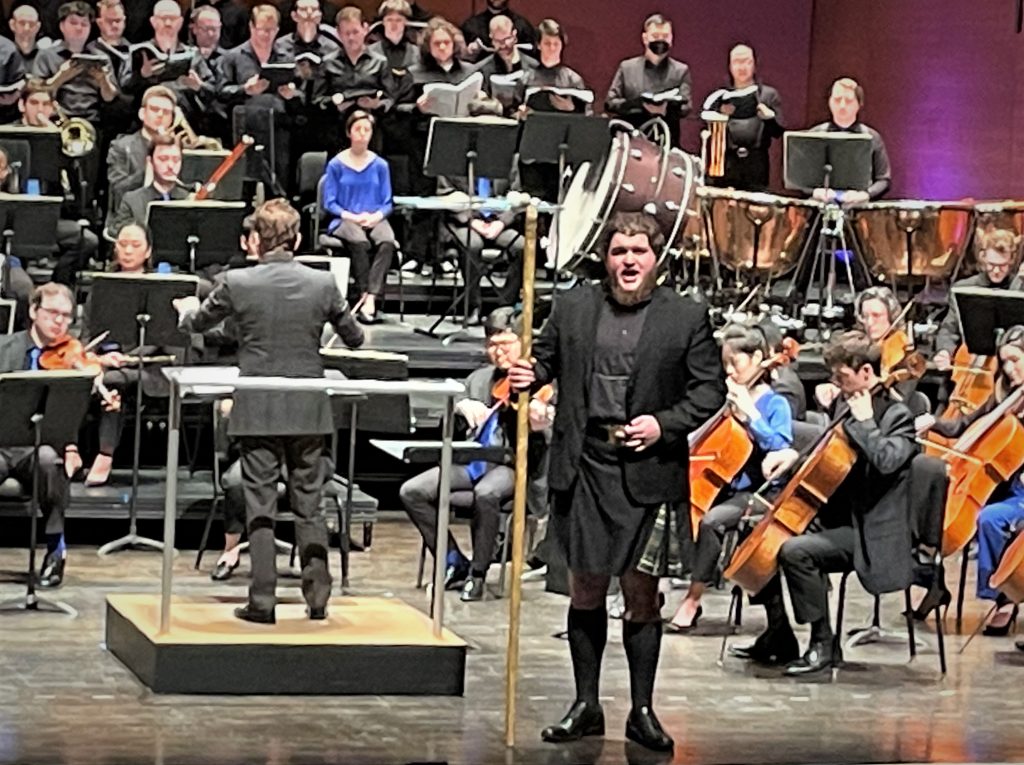
In some of the operetta’s best lines the English parliament endured the whipping it has always deserved. While there may have been more violins than was necessary, Petra Elek supplied superior percussion along with the magnificent trombones of Stephen Whimple and Samuel Boeger.
Neither music nor theater need be profound. It’s fun to have a laugh from time to time, especially near the end of icy winter…
